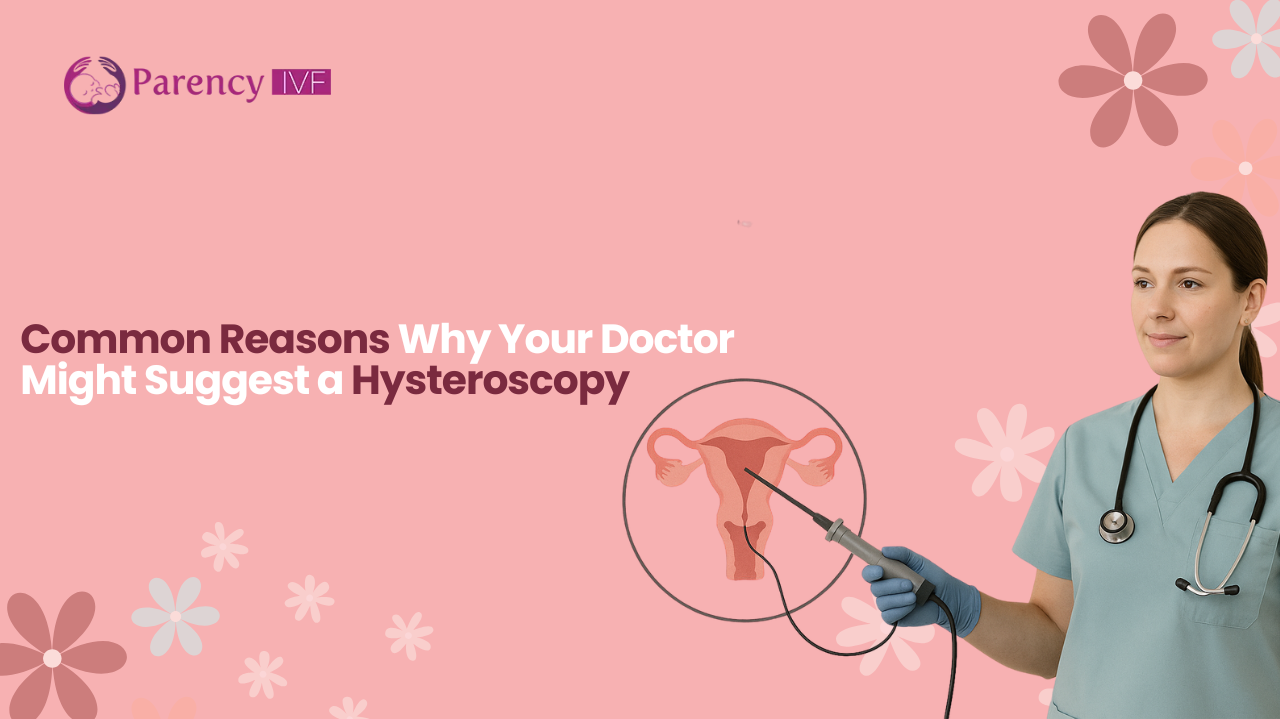



If you’re experiencing unexplained bleeding, pelvic pain, or fertility issues, your doctor may recommend a hysteroscopy to investigate the underlying causes. Hysteroscopy is a minimally invasive procedure that can provide valuable insights into uterine health, helping doctors diagnose and treat various gynaecological conditions. Read on to learn about the common reasons why hysteroscopy may be recommended and what you can expect from the procedure.
A hysteroscopy is a minimally invasive procedure used to examine the inside of the uterus using a narrow, lighted tube called a hysteroscope. This procedure allows doctors to investigate uterine conditions that may cause abnormal symptoms such as bleeding, pelvic pain, or fertility problems.
There are 2 types of hysteroscopy: diagnostic hysteroscopy (used for investigation) and operative hysteroscopy (used to treat identified problems). The procedure is typically performed through the vagina, often under local, regional, or no anesthesia, depending on the complexity of the procedure.
You may wonder, "How Painful is a Hysteroscopy without Anaesthesia?" While some mild discomfort may be felt during the procedure, it is generally well tolerated, especially when local anaesthesia is used.
There are several key reasons why your doctor might recommend a hysteroscopy:
The hysteroscopy procedure typically takes 15-30 minutes and can be performed either in an outpatient department (OPD) or a day surgery unit. Depending on the case, the procedure may be done with or without anaesthesia. After the procedure, you may experience mild cramping, spotting, or light discharge. These symptoms generally subside within a day or two. You can usually resume normal daily activities, although it is suggested that you abstain from heavy lifting or strenuous activities for a short time.
As with any procedure, there are risks associated with hysteroscopy, though they are rare.
While the risks are low, it’s important to consult with your healthcare provider if you experience severe pain, fever, or unusual discharge after the procedure.
The cost for hysteroscopy typically ranges from ₹15,000 to ₹45,000, depending on the complexity of the procedure. Prices may vary between private fertility centres, multispecialty hospitals, and standalone gynaecological setups. Some private IVF centres may offer competitive pricing, and insurance may cover diagnostic or therapeutic hysteroscopy. When comparing costs, consider the quality of care and the expertise of the best IVF doctor. For a more tailored experience, seek a fertility specialist consultation in Bangalore to discuss how this procedure could impact your fertility treatment.
Hysteroscopy is a safe and effective way to identify and treat various uterine conditions, offering valuable insights for women struggling with fertility issues, abnormal bleeding, or pelvic pain. Early diagnosis through this procedure can prevent major fertility complications and improve the chances of successful pregnancy outcomes.
If you're experiencing abnormal symptoms or facing fertility challenges, speak with a gynaecologist or fertility expert today to see if hysteroscopy is right for you. At Parency IVF Hospital, we offer expert guidance and personalised treatment plans to address your reproductive health concerns. Book your appointment here.